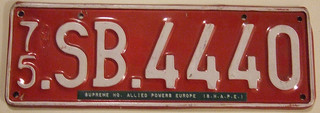Physical Address
304 North Cardinal St.
Dorchester Center, MA 02124

As you plan the start of your new business, at some point you’ll need to think about which business licenses you’ll need. Depending on what kind of business you are going to launch, you may need to acquire a federal, state, or local license—or possibly one or more of each.
• transport animals, animal products, plants, or biotechnology across state borders
• make, import, or sell alcoholic beverages at a retail location
• operate an aircraft or provide aircraft parts and maintenance
• manufacture, import, or sell fire arms or ammunition or explosives
• conduct a business engaged in wildlife activity (including import/export)
• operate a commercial fishery
• transport goods or cargo by sea
• mining or drilling for natural gas, oil, or other natural resources on federal lands
• produce nuclear energy, fuel or dispose of these
• broadcast by radio, television, wire, satellite, or cable
• transport goods across state lines in an oversize or overweight vehicle
The SBA maintains a list of activities that require a federal license complete with links where you can apply. If your business is involved in one of the activities above, you should take a look at the list of links.
Most states require licenses for some occupations, but it’s not consistent from state to state. Barbers and nail technicians, for example, are licensed in all 50 states. But massage therapists and plumbers aren’t (yet). Here’s a partial list of the kinds of businesses that may require a license from your state:
• accountants
• architects or interior design
• attorneys
• auto dealership
• banking and lending
• barbershop or beauty salon
• child care
• condominiums, timeshares, or coops
• construction contractor (or related business)
• debt collection
• electrician
• gambling
• home health care
• insurance agents
• massage therapist
• nurses
• plumber
• restaurant and eateries (includes food trucks)
• real estate broker or appraiser
• taxi, limosine, or other car service
Don’t see your business on the list? That doesn’t mean your free and clear. Every state is different. Some regulate certain tradesmen and professions, while others choose not to (though as more states see the potential for raising additional fee revenue, more businesses are being regulated). The SBA maintains a list of links to state licensing agencies. Click the link to your state and check to see if your business requires a license. The requirements and fees associated with these licenses vary by state and occupation. Some licenses require several hundred dollars and as many as 2000 hours of supervised training before a license will be granted.
Many cities and counties require a license to open an office or retail location within their boundaries. This is usually a general business license that accompanies a visit from the fire marshal to ensure that your business meets minimum safety requirements. The cost of a local business license is usually quite low—$100-500 depending on the size of your business.
If your business is conducted entirely online and you don’t have a physical location, you may not need a business license. The same may be true if you are running a freelance design or writing business from your home. But be careful. If you run a business from your home and invite partners, customers, or others there for meetings or other events, your local government may determine that you are using your home as a business location (which may not be legal depending on your local zoning laws). So check with your local authority before deciding not to get a license.
If you are serious about your business, you need to get a tax payer id for it—it’s called an EIN and it’s like a social security number for your business. You get this from the IRS. And you will definitely want to register your business with your state’s incorporation division. This will pay dividends when it’s time to file your taxes and insure your business against loss.